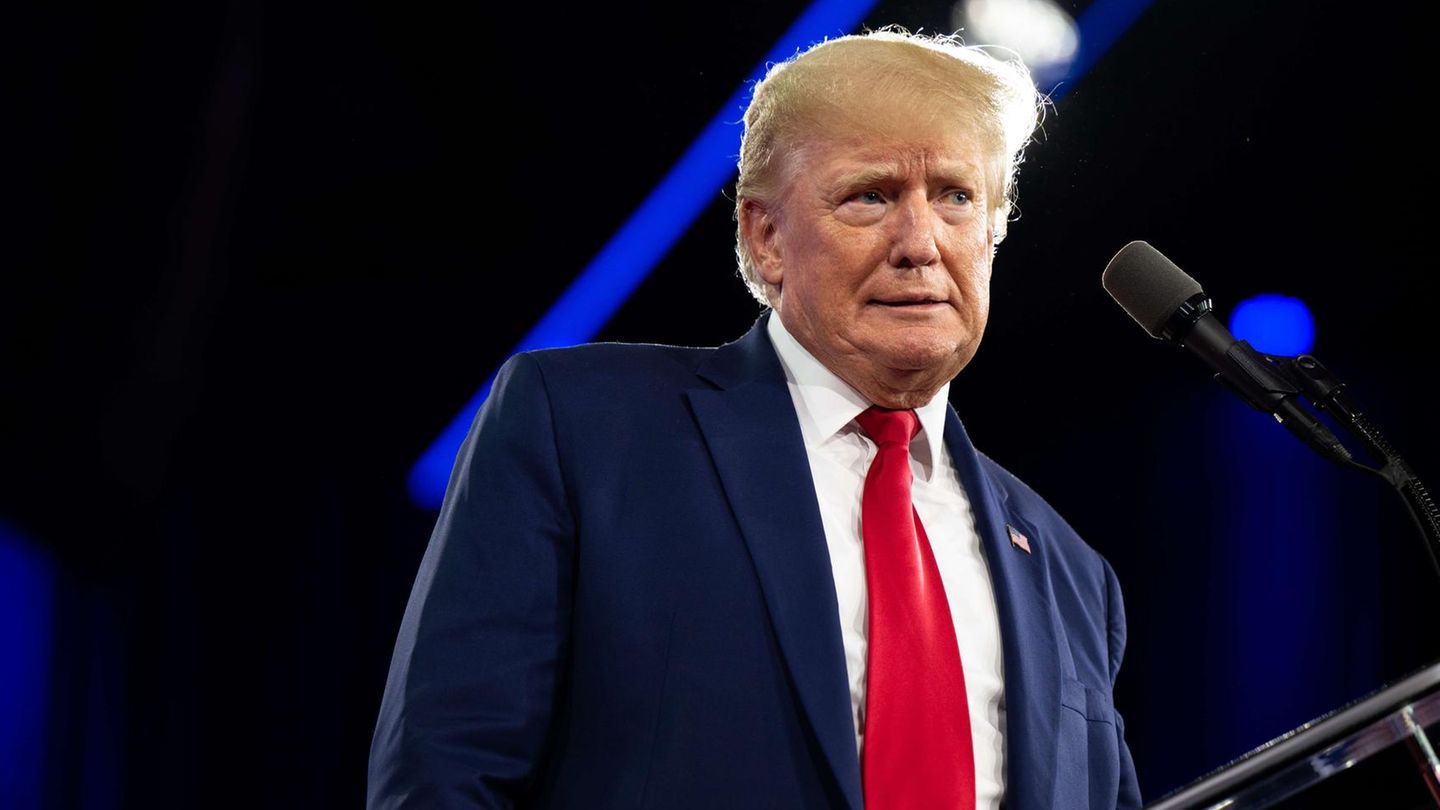Donald Trump is said to have taken documents from the White House and kept them in his Mar-a-Lago estate. Should he be charged and convicted because of this, another presidential candidacy would be out of the question – or not?
Even if he has not yet publicly announced his candidacy, Donald Trump has been hinting for weeks that he wants to get back into the race for the presidency in 2024. But after the FBI searched the 76-year-old’s property in Palm Beach, Florida, on Monday before last, because he is said to have hoarded secret documents from the White House there, the question arises: could he also stand up if he were convicted of the allegations would become?
What is Donald Trump accused of?
To find an answer, one must first look at the reasons for the US federal police raid. The Justice Department has so far declined to comment. However, the search warrant that was a prerequisite for the FBI action implies that a criminal investigation is underway. And the release of that court order and a list of the documents seized just days ago showed that Trump is under investigation for possible violation of the Espionage Act and possible obstruction of justice.
According to the list, among the papers seized were documents classified as “top secret”, “secret” and “confidential”. Some documents were even marked to be viewed only in secure government facilities.
The investigation into Trump’s handling of the White House documents is ongoing and the Republican has not yet been charged. However, the search warrant lists possible violations of several US laws. These are the violations and the potential penalties if charged:
Violation of the anti-espionage law
The search warrant invokes, among other things, Article 18, Section 793 of the Criminal Code, which is part of the Anti-espionage Act. The criminal offense listed therein relates to “collecting, transmitting or losing defense information”. If Trump is charged with violating the anti-espionage law, he faces at least a fine and a maximum of ten years in prison.
misappropriation of documents
Furthermore, the search warrant refers to Article 18, Section 2071 of the Criminal Code. It is a criminal offense under the Act to intentionally and unlawfully conceal, remove, mutilate, falsify, or destroy government documents. The provision is not limited to classified information.
Violations of Article 18, Section 2071 are punishable by a fine of up to $2,000 and imprisonment for up to three years. The law also provides that convicts who hold federal office should “forfeit” that office and be barred from holding any federal office.
obstruction of justice
Trump could also potentially be charged with obstruction of justice under Article 18, Section 1519 of the Criminal Code. The law criminalizes the “destruction, alteration, or falsification of records of federal investigations and bankruptcies.” If found guilty, the 76-year-old could face up to 20 years in prison and/or a fine of up to $5,000.
Of course, the provision in Section 2071, according to which those convicted of violations of this law are to be barred from holding any federal office, is of interest with regard to a possible renewed presidential candidacy of Trump. At first glance, the legal situation seems clear: if the former president is charged and found guilty of one of the criminal offenses listed there, he cannot return to office.
But in fact the situation is more complicated.
The US Constitution lists three requirements that presidential candidates must meet:
- You must be a native US citizen
- You must have lived in the United States for at least 14 years
- You must be at least 35 years old
Section 2071 passed by the US Congress would effectively add a fourth to these three requirements. Namely, that presidential candidates must not have been convicted of breaking the law. And that would be highly contestable legally, as numerous legal experts have made clear to the US media and in commentaries, since the Constitution is above all other provisions.
“We’re going to see litigation all the way up to the Supreme Court if that becomes an issue in the 2024 election,” Neama Rahmani, a former federal attorney. And Rick Hasen, electoral law expert at the University of California at Los Angeles, : “This law cannot trump the Constitution, which establishes the exclusive qualifications for the office of President. So this is not a way to legally deprive Trump of the opportunity to run for office.”
His colleague at UCLA, law professor Eugene Volokh, is also “quite confident” that disqualifying Trump under the law would not stand up to challenge. “I don’t think Trump can be disqualified as president by this law,” he told USA Today. “The reason for this is that the Supreme Court has essentially said that the constitutional criteria for eligibility are the exclusive criteria.”
The same conclusion can be drawn with reference to a Supreme Court ruling from 1969. According to this, at that time an elected member of the House of Representatives who fulfilled the constitutional requirements for the office could not be expelled by a vote of his congressional colleagues. In doing so, the US Supreme Court indicated that Congress cannot add further requirements to the constitutional qualification rules, Levinson concludes.
Even if Trump were convicted of another of the crimes uncovered by the raid — or in one of the many other trials the ex-president has on his hands — that wouldn’t necessarily stop him. Convicted felons have run for the presidency before. Lyndon LaRouche was convicted of tax and mail fraud in 1988 and ran for the highest state office on multiple occasions between 1976 and 2004. Eugene Debs, who violated the Anti-Spying Act of 1917 with an anti-war speech, was even in federal prison while running for the White House as a Socialist in 1920. Debs’ supporters gave out campaign buttons for “Prisoner 9653” at the time. However, none of them was elected.
Sources: , , , ,
Source: Stern
David William is a talented author who has made a name for himself in the world of writing. He is a professional author who writes on a wide range of topics, from general interest to opinion news. David is currently working as a writer at 24 hours worlds where he brings his unique perspective and in-depth research to his articles, making them both informative and engaging.




